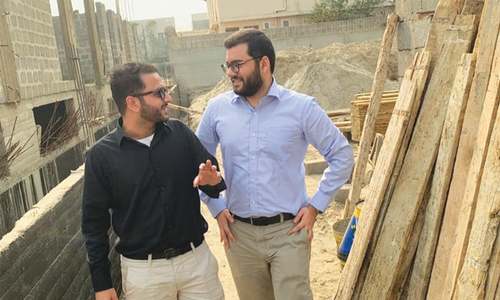
How often do you find yourself engaged debating over a religious issue but realise you don’t know enough on the matter? Or would like to learn more on a certain topic without undertaking a thorough study of Islam? That’s exactly what a Karachi-based startup has built: a Quran and Hadith search engine.
Islam360 is an app that lets you explore Islamic literature through a single platform. You can read the Quran by parah (part), surah (chapter), listen to its recitation with or without translation, or delve into the tafseer. Alternatively, you can search by word, verse, phrase or even the subject.
A similar indexation and search engine exists for Hadith as well. Other than that, the app has a Qibla finder, Islamic calendar, prayer times and tens of more features, including voice command, Arabic teacher.
The app is available in Romanised Hindustani, as well as Urdu, Hindi and Arabic in their original scripts. You can read the available content, tap on each word to know its meaning or even the etymology. They already have translations and tafseer from four major schools of thought practised in Pakistan, and plan to keep adding more works.
It was the brainchild of Zahid Hussain Chihpa, who listened to a verse somewhere but couldn’t recall the source and had no easy way to search. “I started manually typing a Romanised Urdu translation over the next year and created a desktop application by the name of Search Quran in 2009,” he recalls.
But with time, as he added more ‘material’ beyond Quran and ventured into Hadith, it was finally rebranded as Islam360 along with an app launch, thus moving away from desktop. Currently it boasts some 6.3 million downloads across both Android and iOS platforms, spanning over 170 countries with daily active users reportedly at 150,000.
Islam360 is far from the only app within this space. Others such Quran.com or the Karachi-based Quran Majeed, as well as numerous more, are doing similar work and have around the same traction, if not more. How do these guys differ from the rest? “First of all, it’s the range of content. Most have either the holy book or Hadith, that too usually from only one school of thought. On the other hand, we have tried to cover all sects and get most major translations,” Chihpa explains. “But even beyond that, it’s the core technology: you can search by word, context, look up etymology and it’s those algorithms and indexation which make us stand out,” he adds.
All the features on the app are free and Chihpa intends to keep it that way. So where does the money come from? They have Google ads in place which generates some cash, but hardly enough to pay the monthly expenses of around $6,500.
To plug the gap, the startup has a pool of donors who have pledged periodic payments and help it get by. Plus they have integrated most major electronic channels like carrier billing and Jazz Cash for Pakistani users and PayPal/bank cards for foreigners.
That doesn’t sound like the most sustainable way of going about though. Why not just introduce a freemium model? “The idea is not really to make money, it’s supposed to be an open-to-all platform,” says Chihpa. But that doesn’t mean he has no plans to be cash positive. “We are considering to venture into other services, like Hajj and Umrah, as a recurring revenue stream,” he adds.
Plus, they are looking for more local advertisers, instead of relying on Google, which the CEO thinks is crucial towards achieving breakeven. Given the app’s traction, as well as growth, that might only be a matter of time.
The venture to this day has been internally funded with the chief wishing to keep it as such. “We would like to keep it on our terms to ensure it’s accessible to all,” he says.
With a Muslim population of almost 1.8 billion, there are many takers for this product. But until now, Chihpa and his team have focused on Desis, given their cultural knowledge.
The next phase, however, is to take it beyond South Asia and localise it for each place. “We have already completed work for 19 languages, such as Malay and Bahasa and would like to reach 104,” he says.
All of it sounds like an overwhelming amount of content, which probably requires significant human resources, thus adding to expenses. “Most of our 17-member team is purely technical, with only 3-4 involved in composing, proofreading etc,” the CEO says.
Wondering how are they building such a multilingual search engine with so small a team? All the translations are obtained (in digital format) from Shah Fahad Complex, which publishes them to hand out to pilgrims visiting the Saudi Kingdom.
With a solid groundwork (tech-wise) already laid, what’s next for the startup? Would it further expand into content, by adding, say, classic religious works or perhaps venture into the booming world of lecture series by celebrity scholars?
“We would stick to Quran and Hadith only, maybe add more translations and recitations but not into Islamic literature. Other than that, Islam360 is working on Arabic learning module plus mood detection,” shares the founder.
The writer is member of staff:
Twitter: @MutaherKhan
Published in Dawn, November 24th, 2019













































